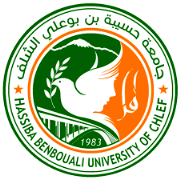Investigating Quality in the Translation of Cultural Items through an AI-based Machine Translation from Arabic into English
DOI:
https://doi.org/10.70204/jlt.v1i1.177Keywords:
Artificial Intelligence, Computer-based Translation, Cultural TranslationAbstract
Computer-based translation, which is believed to enjoy rapidity, readability, and translatability of various types of texts as they become more artificially intelligent, has begun to be discussed on the different issues of accuracy and intercultural comprehension. This
study is based on House’s quality assessment model to evaluate how an AI-based translation system operates. A variety of extracts from the cultural travelogue of Ibn Battuta’s Rihla are
used as a measure of exposure of cultural translation. Notably, the study found that AI-based translation does not have a similar effect as human translations do, which are less likely to drop the actual meanings delivered in the original texts. These findings indicate that, contrary to what has been assumed on computer translation, AI-based translation does not enjoy accuracy with regards to intercultural translation. Rather, human translation, which draws on different aspects of translation strategies and background knowledge, delivers more accurate and acculturated translations.












